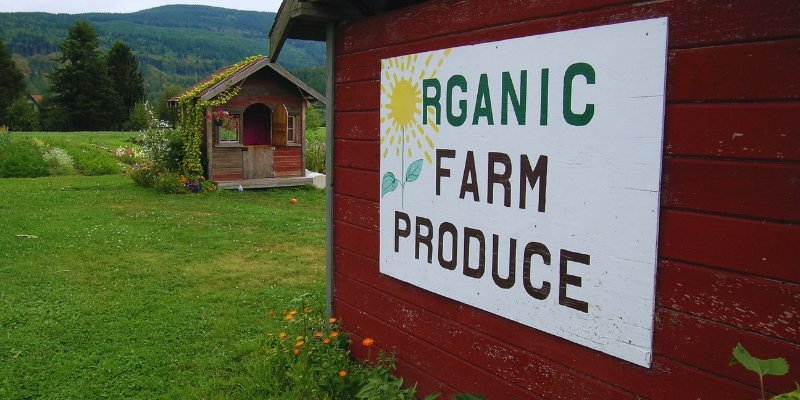Establishing an Organic Farming Business in Singapore: A Guide for Aspiring Entrepreneurs

As the global demand for sustainable and healthy food options rises, organic farming has emerged as a viable solution to meet consumers’ needs while promoting environmental stewardship. In Singapore, where land is limited, establishing an Organic Farming Business offers a unique opportunity for aspiring entrepreneurs to contribute to food security and sustainability. This guide will outline the essential steps to launch your organic farming venture, highlighting key considerations, challenges, and financial planning aspects.
Reasons to Start an Organic Farming Business

There are several compelling reasons to consider starting an Organic Farming Business in Singapore. Firstly, the growing awareness of health and wellness among consumers has led to increased demand for organic produce. Many Singaporeans are becoming more conscious of the food they consume, preferring organic options that are free from harmful pesticides and chemicals.
Secondly, the Singapore government actively supports initiatives that promote sustainable agriculture. Programs like the “30 by 30” goal aim to produce 30% of the country’s nutritional needs locally by 2030. This supportive environment creates opportunities for entrepreneurs who can provide organic produce to meet this objective.
Additionally, organic farming practices can contribute to environmental sustainability by improving soil health, conserving water, and promoting biodiversity. By starting an organic farming business, you can play a crucial role in creating a more sustainable food system while appealing to eco-conscious consumers.
Detailed Steps to Establish an Organic Farming Business

Conduct Market Research: Begin by analyzing the local market for organic produce. Identify your target audience, which may include health-conscious consumers, restaurants, and grocery stores. Understanding market trends, competitor offerings, and potential clients’ needs will help you position your business effectively.
Develop a Business Plan: Create a comprehensive business plan that outlines your vision, mission, and objectives. Include details about your target market, product offerings, marketing strategies, and operational plans. A well-structured business plan is essential for guiding your operations and attracting potential investors.
Choose Your Farming Model: Decide on the type of organic farming you want to pursue. Options include hydroponics, aquaponics, vertical farming, or traditional soil-based farming. Each model has its own benefits and challenges, so consider factors such as space, investment, and crop selection when making your choice.
Obtain Necessary Certifications: To operate an Organic Farming Business, you will need to obtain the relevant certifications to comply with local regulations. The Singapore Food Agency (SFA) provides guidelines for organic certification, ensuring that your products meet established organic standards.
Register Your Business: Register your Organic Farming Business with the Accounting and Corporate Regulatory Authority (ACRA) in Singapore. Choose a suitable business structure, such as a private limited company, which provides limited liability and is appealing to investors.
Find the Right Location: Selecting a strategic location is crucial for your business’s success. Look for land that is suitable for organic farming, considering factors such as soil quality, access to water, and proximity to your target market. Urban farming options, such as rooftop gardens or community plots, can also be explored.
Source Seeds and Equipment: Identify suppliers for organic seeds and farming equipment. Ensure that all materials used in your farming practices comply with organic standards. Building relationships with suppliers can also lead to better pricing and reliable access to quality products.
Implement Sustainable Practices: Incorporate sustainable farming practices into your operations, such as crop rotation, composting, and natural pest control. These practices not only enhance the quality of your produce but also contribute to the long-term health of the environment.
Create a Professional Website: Develop a user-friendly website that outlines your offerings, certifications, and contact information. Your website should serve as a platform to engage customers with blog posts, recipes, and information about your farming practices.
Market Your Business: Implement a marketing strategy to promote your Organic Farming Business. Utilize social media, local advertising, and community events to raise awareness. Engaging content, such as farm tours and cooking demonstrations, can attract followers and potential customers.
Challenges and Considerations for Both Local and Foreign Entrepreneurs

Starting an Organic Farming Business comes with its own set of challenges. Local entrepreneurs may face competition from established organic farms and supermarkets. To stand out, focus on your unique offerings, such as specialty crops or value-added products like jams and sauces.
Foreign entrepreneurs may encounter additional hurdles, such as understanding local regulations, cultural preferences, and consumer behavior. Familiarizing yourself with Singapore’s agricultural policies and community needs is essential for providing effective services.
Moreover, organic farming often requires a longer time frame to see returns on investment compared to conventional farming. Building a loyal customer base and establishing a reputable brand will be key to ensuring long-term success.
Financial Planning Aspects

Effective financial planning is crucial for the success of your Organic Farming Business. Here are key considerations:
Startup Costs: Assess your initial costs, including registration fees, land acquisition or rental, equipment, seeds, and marketing expenses. Creating a detailed budget will help you manage your finances effectively.
Operational Expenses: Plan for ongoing costs such as salaries, utilities, water, and maintenance of farming equipment. Understanding these recurring expenses will help you maintain a healthy cash flow.
Revenue Streams: Identify multiple revenue streams to enhance profitability. In addition to selling fresh produce, consider offering workshops, farm tours, and subscription boxes for regular customers.
Funding Options: Explore various funding options, including personal savings, bank loans, or government grants for sustainable agriculture. Presenting a solid business plan and demonstrating the potential impact of your services can attract financial support.
Financial Projections: Create financial projections for at least the first three years of operation. This will help you set realistic goals and assess the viability of your business model.
Conclusion
Establishing an Organic Farming Business in Singapore is a rewarding venture for aspiring entrepreneurs. With the increasing demand for organic produce and the government’s support for sustainable agriculture, this industry holds significant potential for success.
If you are ready to take the next step in launching your Organic Farming Business, consider partnering with experts who can guide you through the process. At Company Formation Specialist, we specialize in helping entrepreneurs navigate the complexities of starting a business in Singapore. Contact us today to learn how we can assist you in establishing your Organic Farming Business and turning your vision into a thriving enterprise.
Frequently Asked Questions
1. What is an Organic Farming Business?
Answer: An organic farming business focuses on producing food through methods that avoid synthetic pesticides, fertilizers, and genetically modified organisms (GMOs). This practice promotes healthier food options and contributes to environmental sustainability.
2. Why should I start an Organic Farming Business in Singapore?
Answer: Starting an organic farming business in Singapore offers the opportunity to meet the growing demand for sustainable, healthy food. With government support for sustainable agriculture and a conscious consumer base, this business is poised for growth.
3. What are the steps involved in starting an Organic Farming Business in Singapore?
Answer: Key steps include market research, developing a business plan, choosing a farming model, obtaining certifications, registering your business, sourcing seeds and equipment, implementing sustainable practices, and creating a marketing strategy.
4. What types of organic farming models are available in Singapore?
Answer: Common models include hydroponics, aquaponics, vertical farming, and traditional soil-based farming. The choice depends on your resources, target crops, and available space.
5. What certifications are required for Organic Farming in Singapore?
Answer: To operate an organic farm in Singapore, you need to obtain organic certification from the Singapore Food Agency (SFA), ensuring your products meet organic standards.
6. What challenges do local and foreign entrepreneurs face in the organic farming industry in Singapore?
Answer: Local entrepreneurs may face competition from established farms, while foreign entrepreneurs might encounter barriers like understanding local regulations and consumer preferences. Both will need a solid market strategy to overcome these challenges.
7. How can I secure funding for my Organic Farming Business in Singapore?
Answer: Funding options include personal savings, bank loans, or government grants. Presenting a strong business plan focused on sustainability can also help attract investors.
8. What are the startup costs involved in starting an Organic Farming Business?
Answer: Initial costs include land acquisition or rental, registration fees, farming equipment, seeds, and marketing expenses. A detailed budget will help manage these costs effectively.
9. What are the operational expenses of running an Organic Farming Business?
Answer: Ongoing costs include salaries, utilities, water, farm maintenance, and equipment upkeep. Proper financial planning is essential for maintaining a steady cash flow.
10. What are the potential revenue streams for an Organic Farming Business?
Answer: Apart from selling fresh produce, businesses can generate revenue through farm tours, workshops, and subscription boxes for regular customers.

